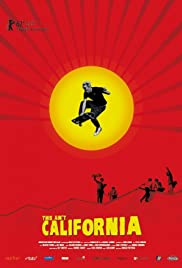Zelig Colonna sonora (1983)

Acquista su Amazon Riproduzione e download di colonne sonore
Sinossi
Mockumentary on the period of fame and infamy of Leonard Zelig in the 1920s and 1930s. He first came to world attention when it was noticed that he appeared in several newsreels more often than not prominently in the background, but sometimes with the newsreels' more famous subjects. But what was considered more remarkable than the varied subjects and the prolific nature of his newsreel footage was that he changed his appearance, sometimes even seemingly his ethnicity, and abilities and skills to match those around him.
Eventually under the care of famed psychiatrist Dr. Eudora Fletcher, he was given the nickname the Chameleon Man in his ability to change his being so effortlessly. Dr. Fletcher's diagnosis was Zelig's need for ultimate conformity in an effort to be universally liked, the malady which she tried to cure. The mockumentary delves not only into the psychiatric issues for Zelig, but also the legal issues he faced on wanting and being able to conform so easily. It also focuses on Zelig and Dr. Fletcher's relationship, which became more than just patient and doctor.
Scarica e riproduci l'elenco delle colonne sonore
| Suonare | Titolo | Artista |
|---|---|---|
|
Zelig
|
||
|
Leonard the Lizard
|
||
|
Doin' the Chameleon
|
||
|
Chameleon Days
|
||
|
You May Be Six People, But I Love You
|
||
|
Reptile Eyes
|
||
|
The Changing Man Concerto
|
||
|
I've Got a Feeling I'm Falling
|
||
|
I'm Sitting on Top of the World
|
||
|
Ain't We Got Fun
|
||
|
Sunny Side Up
|
||
|
I'll Get By
|
||
|
I Love My Baby, My Baby Loves Me
|
||
|
Runnin' Wild
|
||
|
A Sailboat in the Moonlight
|
Carmen Lombardo:
Scrittore
|
|
|
Charleston
|
||
|
Chicago (That Toddlin' Town)
|
||
|
Five Feet Two, Eyes of Blue
|
||
|
Anchors Aweigh
|
Alfred Hart Miles:
Testi
Charles A. Zimmerman: Esecutore Domenico Savino: Esecutore George D. Lottman: Testi aggiuntivi Dick Hyman: Esecutore |
|
|
Take Me Out to the Ballgame
|
Albert von Tilzer:
Esecutore
|
|
|
The Internationale
|
||
|
Ça ç'est Paris
|
||













